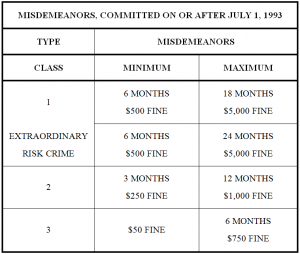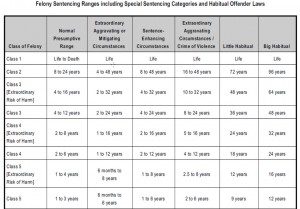Colorado Criminal Law – Understanding Colorado’s Gambling and Casino Crimes
Colorado Criminal Law – Understanding Colorado’s Gambling and Casino Crimes
By H. Michael Steinberg – Colorado Criminal Defense Lawyer for Gambling Crimes
Colorado Criminal Law – Understanding Colorado’s Gambling and Casino Crimes – While Colorado provides some of the finest venues for Gambling in the Southwest – the casinos in the gambling towns of Blackhawk, Central City, and Cripple Creek file many criminal cases in Gilpin County court against unwary gamblers unfamiliar with Colorado’s gambling laws.
What Are The Crimes Typically Charged In Colorado’s Gambling Venues?
Unfortunately young people – those under 21 – are drawn to Colorado’s mountain gambling towns. Underage gambling in Colorado is charged under Colorado Statutes 12- 47.1-809
Here is the law that applies:
12-47.1-809. Age of participants – violation as misdemeanor – applicability. (The Colorado Limited Gaming Act)
(1) (a) It is unlawful for any person under twenty-one years of age to:
(I) Linger in the gaming area of a casino;
(II) Sit on a chair or be present at a gaming table, slot machine, or other area in which gaming is conducted; or
(III) Participate, play, be allowed to play, place wagers, or collect winnings, whether personally or through an agent, in or from any limited gaming game or slot machines.
(b) Subparagraphs (I) and (II) of paragraph (a) of this subsection (1) shall not apply to a person employed by the casino in which the person is present.
[HMS – Passing through the casino to a non-gaming area IS allowed]
(c) Nothing in paragraph (a) of this subsection (1) shall prevent any person under twenty-one years of age from passing through a casino to non-gaming areas.
(2) It is unlawful for any person to engage in limited gaming with, or to share proceeds from
limited gaming with, any person under twenty-one years of age.
(3) (a) It is unlawful for any licensee to permit any person who is less than twenty-one years of age to:
(I) Linger in the gaming area of a casino;
(II) Sit on a chair or be present at a gaming table, slot machine, or other area in which gaming is conducted; or
(III) Participate, play, place wagers, or collect winnings, whether personally or through an agent, in or from any limited gaming game or slot machine.
(b) Subparagraphs (I) and (II) of paragraph (a) of this subsection (3) shall not apply to a person employed by the casino in which the person is present.
(c) Nothing in paragraph (a) of this subsection (3) shall prevent any person under twenty-one years of age from passing through a casino to non-gaming areas.
(4) Any person violating any of the provisions of this section commits a class 2 misdemeanor
and shall be punished as provided in section 18-1.3-501 , C.R.S.
(5) Any person violating any of the provisions of this section with a person under eighteen
years of age may also be proceeded against pursuant to section 18-6-701 , C.R.S., for
contributing to the delinquency of a minor.
Summary: There are essentially two classes of crimes in this area. For persons under 21 – a violation of this law is only a class 2 misdemeanor
BUT if you assist someone who is under 21 to commit this crime – you may be charged with a felony – Section 18-6-701 , C.R.S., Contributing to the Delinquency of a Minor
Using A Fake ID As An Illegal Work Around The 21 Year Age Requirement
Using Fake ID’s to purchase alcohol or to get into nightclub venues is nothing new.
But when the use of these Ids includes gambling and drinking in Colorado’s mountain casinos – forgive the phrase – the “stakes” go up.
Forgery along with the use of a phony – or fake ID – Felony Forgery charges – 18-5-102 – can be added just for the possession of a fake or false ID. Casinos often have close relationships with the local police in which these casinos operate and for political reasons – often unrelated to the seriousness of the acts of the targeted young people – the charges are often “upped” to send a message to other teenagers thinking about crashing the casinos.
But the possible charges do not end there. There is are at least two entire sections of Colorado statutes full of possible crimes that could fit the acts of young people who love to be in the casinos and actually engage in inappropriate gambling.
One is the Fraudulent Acts Law 12-47.1-823 law – which reads:
§ 12-47.1-823. Fraudulent acts
(1) It is unlawful for a person:
(a) To alter or misrepresent the outcome of a game or other event on which wagers
have been made after the outcome is made sure but before it is revealed to the
players;
(b) To place, increase, or decrease a bet or to determine the course of play after
acquiring knowledge, not available to all players, of the outcome of the game or
any event that affects the outcome of the game or which is the subject of the bet or
to aid anyone in acquiring such knowledge for the purpose of placing, increasing,
or decreasing a bet or determining the course of play contingent upon that event or
outcome;
(c) To claim, collect, or take, or attempt to claim, collect, or take, money or anything of
value in or from a limited gaming activity with intent to defraud and without having
made a wager contingent thereon, or to claim, collect, or take an amount greater
than the amount won;
(d) Knowingly to entice or induce another to go to any place where limited gaming is
being conducted or operated in violation of the provisions of this article, with the
intent that the other person play or participate in that limited gaming activity;
(e) To place or increase a bet after acquiring knowledge of the outcome of the game
or other event which is the subject of the bet, including past-posting and pressing
bets;
(f) To reduce the amount wagered or to cancel a bet after acquiring knowledge of the
outcome of the game or other event which is the subject of the bet, including
pinching bets;
(g) To manipulate, with the intent to cheat, any component of a gaming device in a
manner contrary to the designed and normal operational purpose for the
component, with knowledge that the manipulation affects the outcome of the game
or with knowledge of an event that affects the outcome of the game;
(h) To, by any trick or sleight of hand performance, or by fraud or fraudulent scheme,
cards, or device, for himself or another, win or attempt to win money or property or
a representative of either or reduce a losing wager or attempt to reduce a losing
wager in connection with limited gaming;
(i) To conduct any limited gaming operation without a valid license;
(j) To conduct any limited gaming operation on an unlicensed premises;
(k) To permit any limited gaming game or slot machine to be conducted, operated,
dealt, or carried on in any limited gaming premises by a person other than a
person licensed for such premises pursuant to this article;
(l) To place any limited gaming games or slot machines into play or display such
games or slot machines without the authorization of the commission;
(m) To employ or continue to employ any person in a limited gaming operation who is
not duly licensed or registered in a position whose duties require a license or
registration pursuant to this article; or
(n) To, without first obtaining the requisite license or registration pursuant to this
article, be employed, work, or otherwise act in a position whose duties would
require licensing or registration pursuant to this article.
(2) Any person issued a license pursuant to this article violating any provision of this section
commits a class 6 felony and shall be punished as provided in section 18-1.3-401 , C.R.S.,
and any other person violating any provision of this section commits a class 1
misdemeanor and shall be punished as provided in section 18-1.3-501 , C.R.S. If the
person is a repeating gambling offender, the person commits a class 5 felony and shall be
punished as provided in section 18-1.3-401 , C.R.S.
Other Crimes Target Adult Colorado Casino and Gambling Crimes
To read the actual text of any one or more crimes – follow this LINK and enter the statute number into the website. The law is then available to study.
[HMS – There is no room here to publish and analyze the myriad of crimes that can be charged in a Colorado Gambling related case.]
C.R.S. 18-20-104 – False Statement on Application for Gaming License / Records
C.R.S. 18-20-105 – Slot Machines
C.R.S. 18-20-106 – Cheating (means altering the result of winning or amount)
C.R.S. 18-20-107 – Fraudulent Acts Related to Gaming
C.R.S. 18-20-108 – Use of Device of Calculating Probabilities
C.R.S. 18-20-109 – Use of Counterfeit or Unapproved Chips, Tokens, Coins, Devices
C.R.S. 18-20-110 – Cheating Games and Devices
C.R.S. 18-20-111 – Unlawful Manufacture, Sale, Distribution of Equipment or Devices
C.R.S. 18-20-112 – Unlawful Entry by Blacklisted, Excluded and Ejected Persons (Trespass)
C.R.S. 18-20-113 – Personal Pecuniary Gain or Conflict of Interest
C.R.S. 18-20-114 – False or Misleading Information
C.R.S. 18-10-103 – Professional Gambling Offenses
C.R.S. 18-10-104 – Gambling Devices, Records and Proceeds
C.R.S. 18-10-105 – Possession of a Gambling Device or Record
C.R.S. 18-10-106 – Gambling Information
C.R.S. 18-10-107 – Gambling Premises
Sometimes Gambling Occurs In Non-Licensed – More Informal Settings
What follows are laws that could trap you with a charge of Illegal Gambling in Colorado and which includes simply helping another to run a game in their living room (see immediately below – the law of Complicity)
18-1-603. Complicity.
A person is legally accountable as principal for the behavior of another constituting a criminal offense if, with the intent to promote or facilitate the commission of the offense, he or she aids, abets, advises, or encourages the other person in planning or committing the offense.
Gambling Crimes In Colorado
18-10-101. Legislative declaration – construction.
(1) It is declared to be the policy of the general assembly, recognizing the close relationship between professional gambling and other organized crime, to restrain all persons from seeking profit from gambling activities in this state; to restrain all persons from patronizing such activities when conducted for the profit of any person; to safeguard the public against the evils induced by common gamblers and common gambling houses; and at the same time to preserve the freedom of the press and to avoid restricting participation by individuals in sport and social pastimes which are not for profit, do not affect the public, and do not breach the peace.
(2) All the provisions of this article shall be liberally construed to achieve these ends and administered and enforced with a view to carrying out the declaration of policy stated in subsection (1) of this section.
18-10-102. Definitions.
As used in this article, unless the context otherwise requires:
(1) “Gain” means the direct realization of winnings; “profit” means any other realized or unrealized benefit, direct or indirect, including without limitation benefits from proprietorship, management, or unequal advantage in a series of transactions.
(2) “Gambling” means risking any money, credit, deposit, or other thing of value for gain contingent in whole or in part upon lot, chance, the operation of a gambling device, or the happening or outcome of an event, including a sporting event, over which the person taking a risk has no control, but does not include:
(a) Bona fide contests of skill, speed, strength, or endurance in which awards are made only to entrants or the owners of entries;
(b) Bona fide business transactions which are valid under the law of contracts;
(c) Other acts or transactions now or hereafter expressly authorized by law;
(d) Any game, wager, or transaction which is incidental to a bona fide social relationship, is participated in by natural persons only, and in which no person is participating, directly or indirectly, in professional gambling; or
…
(f) Any use of or transaction involving a crane game, as defined in section 12-47.1-103 (5.5), C.R.S.
(3) “Gambling device” means any device, machine, paraphernalia, or equipment that is used or usable in the playing phases of any professional gambling activity, whether that activity consists of gambling between persons or gambling by a person involving the playing of a machine; except that the term does not include a crane game, as defined in section 12-47.1-103 (5.5), C.R.S.
(4) “Gambling information” means a communication with respect to any wager made in the course of, and any information intended to be used for, professional gambling. In the application of this definition the following shall be presumed to be intended for use in professional gambling: Information as to wagers, betting odds, or changes in betting odds. Legitimate news reporting of an event for public dissemination is not gambling information within the meaning of this article.
(5) “Gambling premises” means any building, room, enclosure, vehicle, vessel, or other place, whether open or enclosed, used or intended to be used for professional gambling. In the application of this definition, any place where a gambling device is found is presumed to be intended to be used for professional gambling.
(6) “Gambling proceeds” means all money or other things of value at stake or displayed in or in connection with professional gambling.
(7) “Gambling record” means any record, receipt, ticket, certificate, token, slip, or notation given, made, used, or intended to be used in connection with professional gambling.
(8) “Professional gambling” means:
(a) Aiding or inducing another to engage in gambling, with the intent to derive a profit therefrom; or
(b) Participating in gambling and having, other than by virtue of skill or luck, a lesser chance of losing or a greater chance of winning than one or more of the other participants.
(9) “Repeating gambling offender” means any person who is convicted of an offense under section 18-10-103 (2) or sections 18-10-105 to 18-10-107 or sections 12-47.1-809 to 12-47.1-811 or 12-47.1-818 to 12-47.1-832 or 12-47.1-839, C.R.S., or sections 18-20-103 to 18-20-114 within five years after a previous misdemeanor conviction under these sections or a former statute prohibiting gambling activities, or at any time after a previous felony conviction under any of the mentioned sections. A conviction in any jurisdiction of the United States of an offense which, if committed in this state, would be professional gambling shall warrant a prosecution in this state as a repeating gambling offender.
(10) “Vintage slot machine” means any model slot machine, as defined in section 12-47.1-103 (26), C.R.S., that was introduced on the market prior to January 1, 1984.
18-10-103. Gambling – professional gambling – offenses.
(1) A person who engages in gambling commits a class 1 petty offense.
(2) A person who engages in professional gambling commits a class 1 misdemeanor. If he is a repeating gambling offender, it is a class 5 felony.
18-10-104. Gambling devices – gambling records – gambling proceeds.
(1) Except as provided in subsection (2) of this section, all gambling devices, gambling records, and gambling proceeds are subject to seizure by any peace officer and may be confiscated and destroyed by order of a court acquiring jurisdiction. Gambling proceeds shall be forfeited to the state and shall be transmitted by court order to the general fund of the state.
(2) If a gambling device is a vintage slot machine and is not operated for gambling purposes for profit or for business purposes, it shall not be confiscated or destroyed pursuant to subsection (1) of this section. If a gambling device is confiscated and the owner shows that such gambling device is a vintage slot machine and is not used for gambling purposes, the court acquiring jurisdiction shall order such vintage slot machine returned to the person from whom it was confiscated.
18-10-105. Possession of a gambling device or record.
(1) Except as provided in subsection (1.5) of this section, a person who owns, manufactures, sells, transports, possesses, or engages in any transaction designed to affect the ownership, custody, or use of a gambling device or gambling record, knowing that it is to be used in professional gambling, commits possession of a gambling device or record.
(1.5) The sale, transportation, manufacture, and remanufacture of gambling devices, including the acquisition of essential parts therefor and the assembly of such parts, is permitted if such devices are sold, transported, manufactured, and remanufactured only for transportation in interstate or foreign commerce when such transportation is not prohibited by any applicable foreign, state, or federal law. Storage of gambling devices is also permitted but only for purposes of manufacturing, remanufacturing, and transporting such devices in interstate or foreign commerce when their transportation is not prohibited.
Such activities may be conducted only by persons who have registered with the United States government pursuant to the provisions of chapter 24 of Title XV of the United States Code, as amended. Such gambling devices shall not be openly displayed, except to legal buyers, or sold for use in Colorado regardless of where purchased, nor manufactured, re-manufactured, or stored for purposes of manufacture, re-manufacture, and transportation in violation of any applicable state or federal law. For purposes of this subsection (1.5), “legal buyer” means a buyer who resides in another state or country which does not restrict the possession of the specific gambling device in question.
(2) Possession of a gambling device or record or violation of subsection (1.5) of this section is a class 2 misdemeanor. If the offender is a repeating gambling offender, it is a class 6 felony.
18-10-106. Gambling information.
(1) Whoever knowingly transmits or receives gambling information by telephone, telegraph, radio, semaphore, or other means or knowingly installs or maintains equipment for the transmission or receipt of gambling information commits a class 3 misdemeanor. If the offender is a repeating gambling offender, it is a class 6 felony.
(2) Facilities and equipment furnished by a public utility in the regular course of business, and which remain the property of the utility while so furnished, shall not be seized except in connection with an alleged violation of this article by the public utility and shall be forfeited only upon conviction of the public utility therefor.
Colorado Criminal Law – Understanding Colorado’s Gambling and Casino Crimes
If you have questions about Colorado Criminal Law- Tactics, Defense and Criminal Justice Issues in the Denver metropolitan area and throughout Colorado, attorney H. Michael Steinberg will be pleased to answer those questions and will provide quality legal representation to those charged in Colorado with adult and juvenile criminal matters.
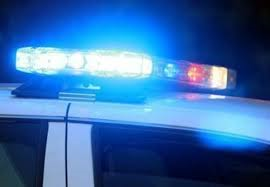
Category: Blog Comments Off on Colorado Criminal Law – Understanding Colorado’s Gambling and Casino Crimes



















